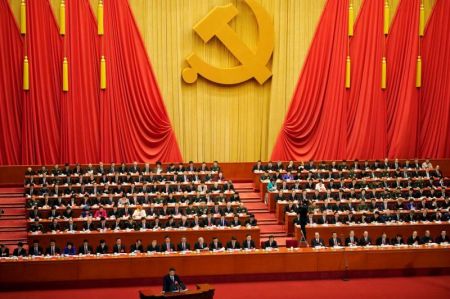China threatens to detain Americans as ‘hostage diplomacy’ tactic

China’s communist officials are pressuring the U.S. Department of Justice to stop prosecuting suspicious Chinese scholars in American courts by threatening to detain Americans in China, according to a report.
“The Chinese officials have issued the warnings to U.S. government representatives repeatedly and through multiple channels, the people said, including through the U.S. Embassy in Beijing,” reported The Wall Street Journal, quoting “people familiar with the matter.”
The warning messages have been “blunt,” the Journal said, adding that China started threatening the U.S. this summer after the arrest of a few Chinese scientists visiting American universities to conduct research on charges of not disclosing to U.S. immigration authorities their active duty statuses with the People’s Liberation Army.
While not confirming or denying the report, a State Department spokesman, who was not named, was quoted as saying, “We warn U.S. citizens that business disputes, court orders to pay a settlement, or government investigations into both criminal and civil issues may result in an exit ban which will prohibit your departure from China until the issue is resolved.”
In July, police in Hong Kong issued arrest warrants for six pro-democracy activists living in exile, including in the United States, for violating a controversial China-imposed national security law in the semi-autonomous city.
The six named included U.S. citizen Samuel Chu, former U.K. consulate worker Simon Cheng and activists Nathan Law and Ray Wong Toi-yeung. The charges include taking part in secession efforts and colluding with foreign powers, according to the U.S.-based group China Aid.
The law, which went into effect without a review by Hong Kong Chief Executive Carrie Lam, has four categories of crimes: succession, subversion of state power, local terrorist activities and collaborating with foreign or external foreign forces to endanger national security.
“The law also positions Beijing as over the Hong Kong judicial system in cases deemed related to national security,” China Aid said at the time. “This means that the judges in these cases must be Beijing-approved. Hong Kong residents can now also be taken to China, where they will face a courtroom with allegiance to the government.”
In 1997, China had agreed to a “one country, two systems” arrangement to allow certain freedoms for Hong Kong when it received the city back from British control. The security law undercuts the promised autonomy.
John Demers, head of the Justice Department’s national security division, told the Journal: “We are aware that the Chinese government has, in other instances, detained American, Canadian and other individuals without legal basis to retaliate against lawful prosecutions and to exert pressure on their governments, with a callous disregard of the individuals involved.”
After the passage of the new security law in Hong Kong, President Donald Trump approved sanctions on Chinese officials and banks and also ended Hong Kong’s preferential treatment, saying it will now be “treated the same as mainland China.”





















